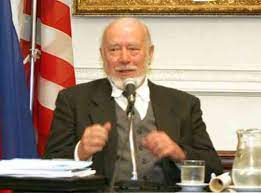Luckmann, Thomas

Bio: (1927-2016) Slovinian-Austrian sociologist. Thomas Luckmann was born in Slovenia, then part of the Kingdom of Serbs, Croats, and Slovenes, and moved to Austria during World War II. In Austria, he studied at the University of Vienna, and continued his studies in the United States, at the New School for Social Research in New York. He has taught at several universities in the United States, Germany, and Australia. Luckmann is best known as the co-author, with Peter Berger, of the book The Social Construction of Reality (1967b). In this book, the authors expanded Schütz's phenomenological theory of society (see Berger for more on this book). Luckmann edited and posthumously published, in two volumes, unpublished manuscripts by Schütz (who was his professor in Austria), entitled Structures of the Life-World (1973, 1989).
Luckmann applied a phenomenological approach to the study of religion. In The Invisible Religion (1967a, in German 1963), he seeks to explore the anthropological roots of religion. The general aspects of human life and being, that they are socially forming and developing a Self, are the universal basis of all religions, although each religion has its own specific religious characteristics and history. Every religion was created by connecting the "symbolic world" with the world of everyday life, followed by the institutionalization of such a connection into a specific religion. Symbolic worlds serve to connect everyday life with super-empirical reality.
Human beings are social beings who can put themselves in the position of another person, and thus understand how others see them. In doing so, they gain a sense of self, which, according to Luckmann, forms the basis of religious experience. In the past, religion was a force that contributed to the creation of a symbolic order that explained reality to people; allowed them to feel about themselves, and explained the meaning of life. In modern societies, the need for religion to create value systems and give them legitimacy has been lost. Religion becomes a matter of private life and personal choice, and a way of satisfying personal needs. Instead of creating a complet over-experiential system of values and knowledge, in the modern age religion serves the self-realization, self-expression, and realization of personal freedoms in individuals.
Main works
The Invisible Religion (1967a);
The Social Construction of Reality (1967b);
Structures of the Life-World, Vol. 1 (1973);
Sociology of Language (1975);
Life-World and Social Realities (1983);
Structures of the Life-World, Vol. 2 (1989);
Changing Face of Religion (1989);
Religion und Kultur (1993);
Modernity, Pluralism and the Crisis of Meaning (1995).

